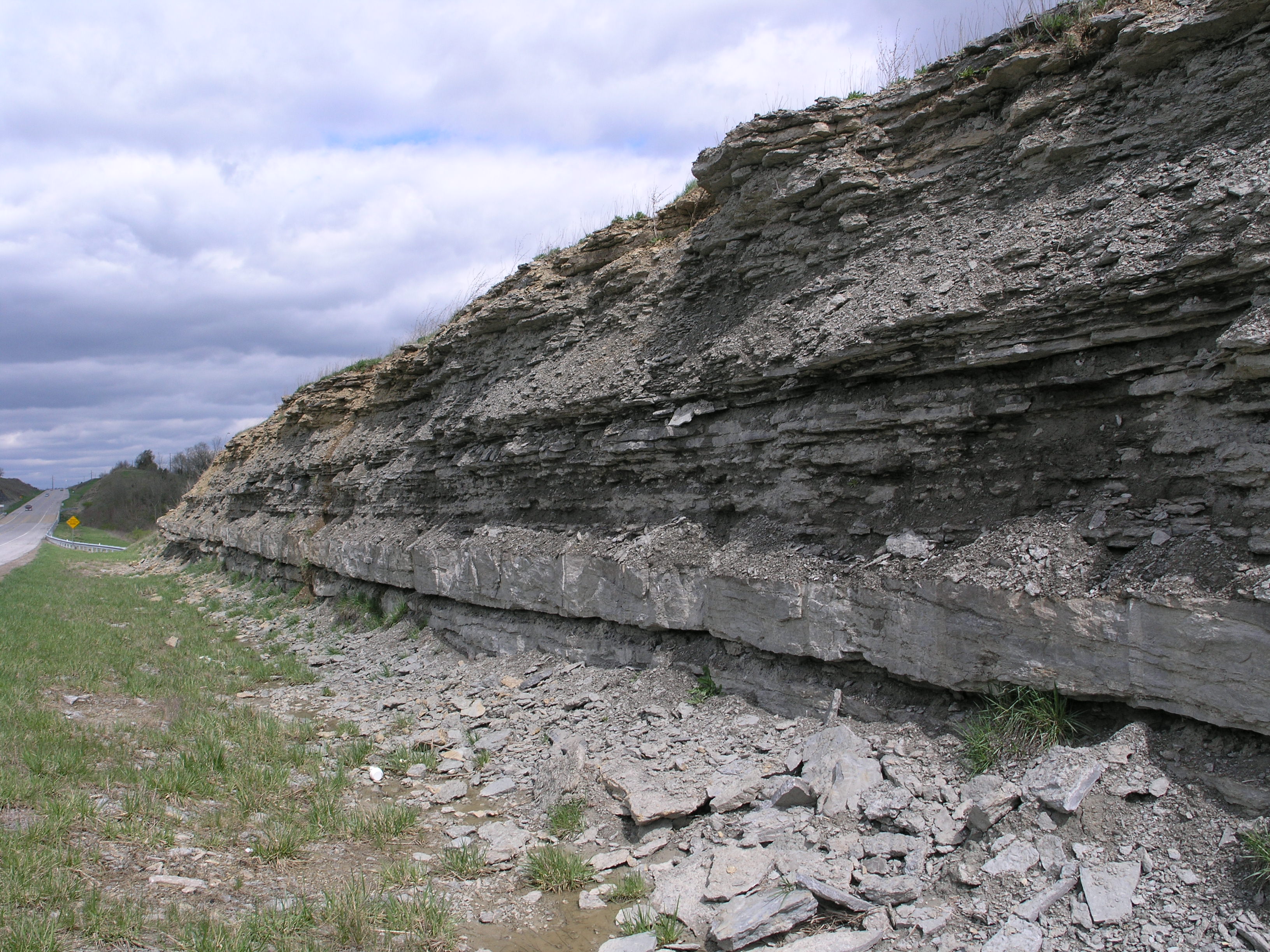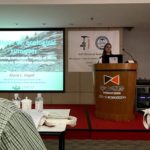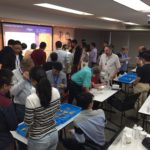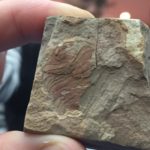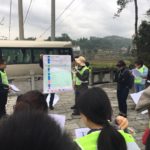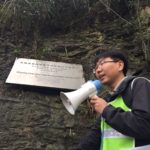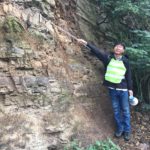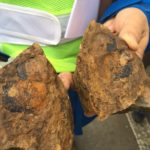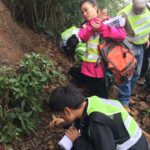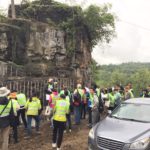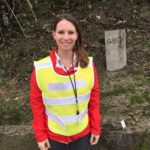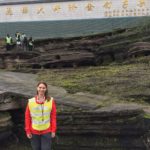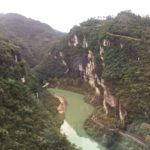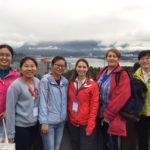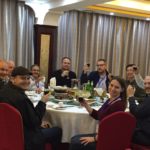IGCP 653: Yichang Reflections
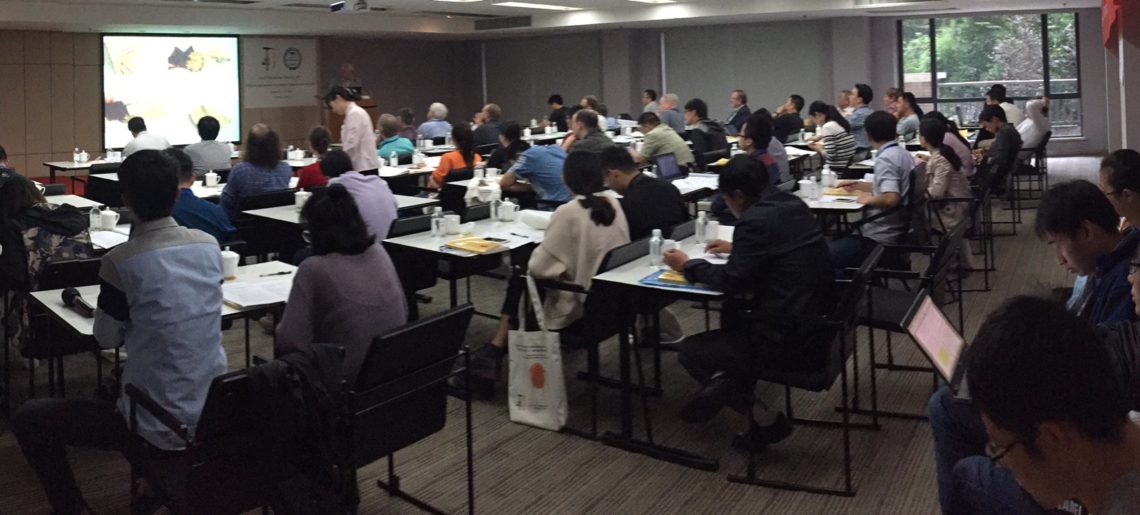
I’m currently on a 12 hour flight from Shanghai to Chicago as part of my 3 flight (and 29 hour) itinerary home from the 2nd Annual IGCP 653 meeting in Yichang, China. I can say, unreservedly, that this was a fantastic meeting!
Attendees included more than 60 delegates from 10 nations. The fact that most attendees were Chinese—and I am not—provided a wonderful opportunity for me to meet many new and upcoming scientists—both students and early career professionals that I have not previously had the opportunity to interact with. I was so impressed by the quality of their science and their ability to communicate at a high level on an international stage. What a talented group of young scientists! I am incredibly encouraged and inspired by them.
Of course, I was also able to reunite with (and meet new) colleagues from Europe, Africa, and North America as well. Truly this meeting met the spirit of UNESCO, our funding agency for the IGCP project, in terms of bridging international divides and fostering common interests and collaborations.
At this conference, provocative scientific ideas were espoused—generating substantial discussion, important geologic sections were visited (including the GSSPs for both the Hirnantian and Dapingian stages!), and cultural differences were both explored and celebrated. It’s exciting both how much we have learned about the Great Ordovician Biodiverisfication Event in terms of ocean chemistry, oxygenation patterns, diversity patterns of metazoans and also how much we have to learn—such as when did this event start and end, whether such things can be clearly defined, and what does that mean for the Earth system?
Speaking for myself, my favorite parts were probably the fact that we had an international assemblage of brachiopod workers to talk with (it’s great-and rare to be among people that love my favorite fossils as much as I do!) and that there were so many dynamic young female researchers in the group.
As anyone who is relatively close to me knows, I am very concerned with increasing participation in science on both a national and international level. I was so encouraged to see so many young and dynamic female scientists! Female students earned awards for both poster and oral presentations. This is pretty groundbreaking.
To place this in context, I had a conversation with a colleague, who I generally admire very much as a scientist, in which he said to me one evening {I’m paraphrasing} “You know, we always try to hire men instead of women for permanent jobs. You can’t say that in open meetings, but in secret meetings, we always say this.” I asked why this was the case and was told that it could be problematic for women to both be in charge of or be the majority of a field team to remote regions. I pushed back on this concept (I certainly was told the similar things as a grad student), and my friend said “Well, most women are not like you. They are not assertive and independent.” On one level, I was glad that my colleague appreciated that some women could be leaders, but it also made clear to me that there are many countries where women still need to fight hard to be considered scientific equals. I am not special. Female scientists need the chance to grow and shine and deserve the same support as our male colleagues.
The male student at our table noted that the female students work much harder and achieve higher levels of excellence than the male students. He sees the value in this contemporaries, and I am heartened that over time this view will win out…but I’d much rather we achieve equity in the near term and not wait 20 years and lose out on the great science these young women could have done by excluding them.
I hope that my work in the international community can help to foster a sense of empowerment for female (and other underrepresented) scientists in both the USA and other nations. At this meeting, I was assertive. I capitalized on my leadership as a co-chair of IGCP 653 role to be present, to chair sessions, to judge and present awards, to invite everyone to Athens, Ohio in 2018, and I hope that seeing one woman do that in a sea dominated by male leadership can help to inspire the fantastic and talented women that I met at this meeting to be assertive and empowered in their own scientific lives.
- ZHAN Renbin opens the meeting
- Guole Biota workshop
- Guole Aglaspidid
- Hirnatian GSSP
- Hirnatian GSSP
- Hirnatian GSSP
- Hirnantia itself
- Hirnatian GSSP
- Floian reef
- Dapingian GSSP
- Dapingian GSSP
- Three Gorges Region
- Yangtze River
- At Three Gorges Dam
- Conference banquet
- Yichang City

